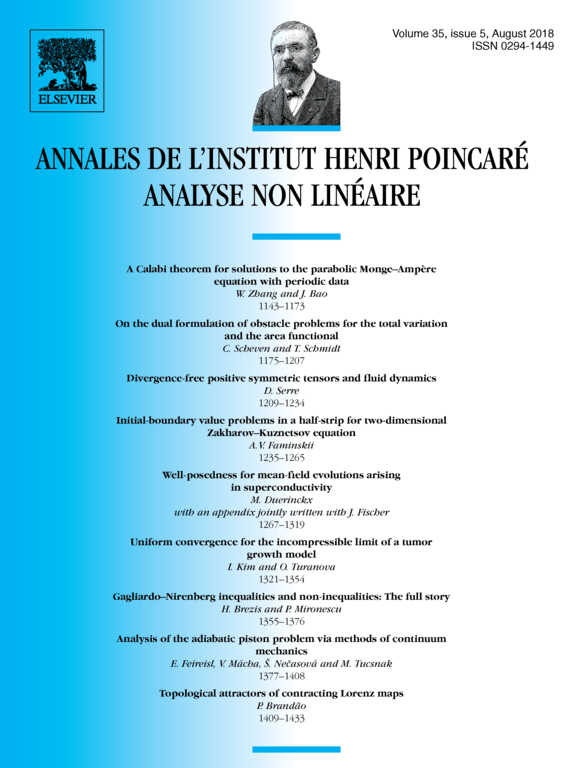Analysis of the adiabatic piston problem via methods of continuum mechanics
Šárka Nečasová
Institute of Mathematics of the Academy of Sciences of the Czech Republic, Žitná 25, CZ-115 67 Praha 1, Czech RepublicMarius Tucsnak
Institut de Mathématiques de Bordeaux, Université de Bordeaux/CNRS/Bordeaux INP, 351 Cours de la Libération, 33405 Talence, FranceEduard Feireisl
Institute of Mathematics of the Academy of Sciences of the Czech Republic, Žitná 25, CZ-115 67 Praha 1, Czech RepublicVáclav Mácha
Industry-University Research Center, Yonsei University 50 Yonsei-ro Seodaemun-gu, Seoul, 03722, Republic of Korea

Abstract
We consider a system modelling the motion of a piston in a cylinder filled by a viscous heat conducting gas. The piston is moving longitudinally without friction under the influence of the forces exerted by the gas. In addition, the piston is supposed to be thermally insulating (adiabatic piston). This fact raises several challenges which received a considerable attention, essentially in the statistical physics literature. We study the problem via the methods of continuum mechanics, specifically, the motion of the gas is described by means of the Navier–Stokes–Fourier system in one space dimension, coupled with Newton's second law governing the motion of the piston. We establish global in time existence of strong solutions and show that the system stabilizes to an equilibrium state for .
Cite this article
Šárka Nečasová, Marius Tucsnak, Eduard Feireisl, Václav Mácha, Analysis of the adiabatic piston problem via methods of continuum mechanics. Ann. Inst. H. Poincaré Anal. Non Linéaire 35 (2018), no. 5, pp. 1377–1408
DOI 10.1016/J.ANIHPC.2017.11.008